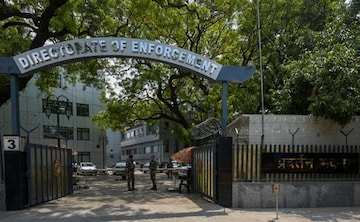Ram Bilas Yadav, a former additional secretary in the Uttarakhand government, has been apprehended by the Enforcement Directorate (ED) in connection with a money laundering investigation related to the alleged possession of disproportionate assets. The arrest was made on Friday under the provisions of the Prevention of Money Laundering Act (PMLA), as stated by the federal agency.
The money laundering case against Yadav originated from a previous First Information Report (FIR) filed by the vigilance establishment, which accused him of owning assets that exceeded his known sources of income. According to the ED, the check period spanning from January 1, 2013, to December 31, 2016, revealed that Yadav had earned Rs 78,51,777 from legitimate sources, while his expenses amounted to approximately Rs 21.40 crore. This substantial difference prompted allegations of amassing disproportionate assets totaling Rs 20.61 crore, which exceeded his legal income by 2,626 percent.
The ED further revealed that Yadav had acquired multiple parcels of land, a flat, and built a house in Lucknow. Additionally, he had established a school and formed a trust in his and his family members’ names, utilizing funds earned through illegal means and allegedly misusing his position as a government servant in Uttar Pradesh and Uttarakhand.
The arrest of the retired IAS officer highlights the serious allegations of money laundering and the accumulation of wealth beyond lawful means. The ED’s investigation will delve into the financial transactions and assets acquired by Yadav during the specified period, aiming to establish a clear connection between the alleged disproportionate assets and illicit activities.
As the case unfolds, authorities will focus on unraveling the intricate web of financial irregularities, determining the sources of illicit funds, and scrutinizing the acquisition of various properties and assets. The arrest serves as a reminder of the importance of accountability and the need to address corruption within the public sector, ensuring that individuals entrusted with positions of power are held to the highest standards of integrity.


